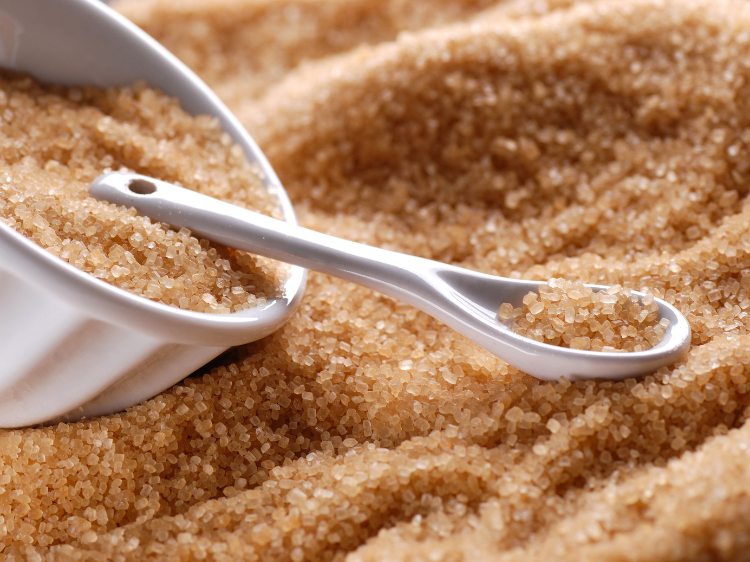Soft dark brown sugar, a ubiquitous ingredient in British kitchens, adds a touch of warmth and moisture to countless baked goods.
From decadent cookies and crumbles to rich treacle tarts and sticky toffee puddings, its distinctive flavor profile is a cornerstone of classic British baking. But with the ever-growing focus on healthy eating, many bakers are left wondering: is brown sugar a friend or foe in the pursuit of well-being?
The Truth About Brown Sugar
The allure of brown sugar lies in its perceived healthiness compared to its paler cousin, white sugar. This misconception likely stems from its color, which comes from the presence of molasses – a syrup leftover from the sugar refining process. Molasses does contain small amounts of minerals like calcium, iron, and potassium. However, according to a study published in the Journal of the American Medical Association, the quantity of these minerals in brown sugar is minimal and contributes very little to our daily needs. In essence, brown sugar and white sugar offer nearly identical nutritional profiles, with brown sugar containing slightly more calories and carbohydrates per serving.
The Famous Brown Sugar Quote: Sweetness with a Side of Caution
As the Rolling Stones famously sang, "Brown sugar, how come you taste so good? Honey child, you look real good too." While the song celebrates the allure of brown sugar's flavor, it serves as a playful reminder to indulge in moderation. While brown sugar may enhance the taste of your favorite treats, it's essential to be mindful of its impact on your health.
The Sweet Truth: Brown Sugar and Your Health
While brown sugar isn't inherently unhealthy, the World Health Organisation (WHO) recommends limiting free sugars (including those found naturally in foods like fruits and honey, as well as added sugars like brown and white sugar) to no more than 10% of your daily calorie intake. This translates to roughly 50 grams of sugar for someone consuming a 2000-calorie diet. Given that a single tablespoon of brown sugar contains around 19 grams of sugar, it's easy to see how exceeding the recommended limit can be quick.
Overconsumption of sugar has been linked to a variety of health concerns, including obesity, type 2 diabetes, heart disease, and even certain types of cancer. Therefore, it's crucial to enjoy brown sugar in moderation, focusing on incorporating it into recipes where its unique flavor truly elevates the dish.
Baking with Balance: Alternatives to Brown Sugar
The good news is that there are several ways to enjoy the flavors you love in your baking without exceeding the recommended sugar intake. Here are some alternative sweeteners to consider:
Honey:
A natural sweetener with a touch of floral flavor, honey offers some additional health benefits compared to sugar, such as antioxidants. However, it's still important to use honey in moderation.
Maple Syrup:
This popular topping can add sweetness and depth of flavor to baked goods. However, maple syrup is also high in sugar, so use it sparingly.
Dates:
Finely chopped or pureed dates can add sweetness and moisture to cakes, muffins, and energy bars.
Fruit Purees:
Pureed applesauce, bananas, or pears can add natural sweetness and moisture, especially in cakes and muffins. Be mindful that these options may add moisture, so you may need to adjust the other liquids in your recipe.
Reduced Sugar Recipes:
Many baking blogs and cookbooks offer formulated recipes with reduced sugar content. These can be a great way to enjoy your favorite treats without derailing your health goals.
Beyond Baking: Utilising Brown Sugar's Versatility
Brown sugar's uses extend beyond the realm of baking. Its rich flavor enhances savory dishes like glazed carrots, BBQ rubs, and marinades. Additionally, its natural humectant properties make it a valuable ingredient in homemade skincare scrubs and lip balms.
The Final Verdict: Brown Sugar – Enjoy in Moderation
Brown sugar, with its warm flavor and moistening properties, remains a valuable tool in any baker's arsenal. However, it's crucial to remember that it's still a form of sugar and should be enjoyed in moderation. By incorporating alternative sweeteners and focusing on portion control, you can continue to create delicious treats without sacrificing your health.
So next time you reach for that bag of soft dark brown sugar, remember: a little goes a long way.



